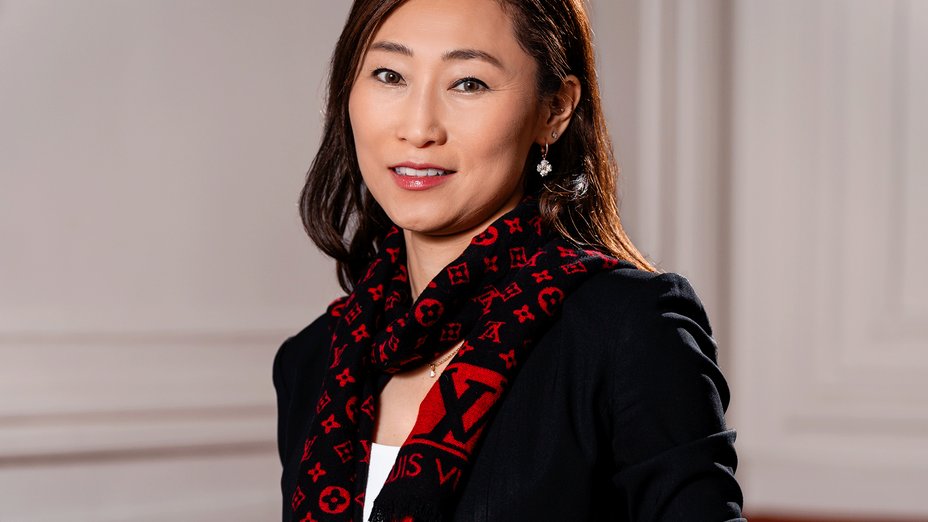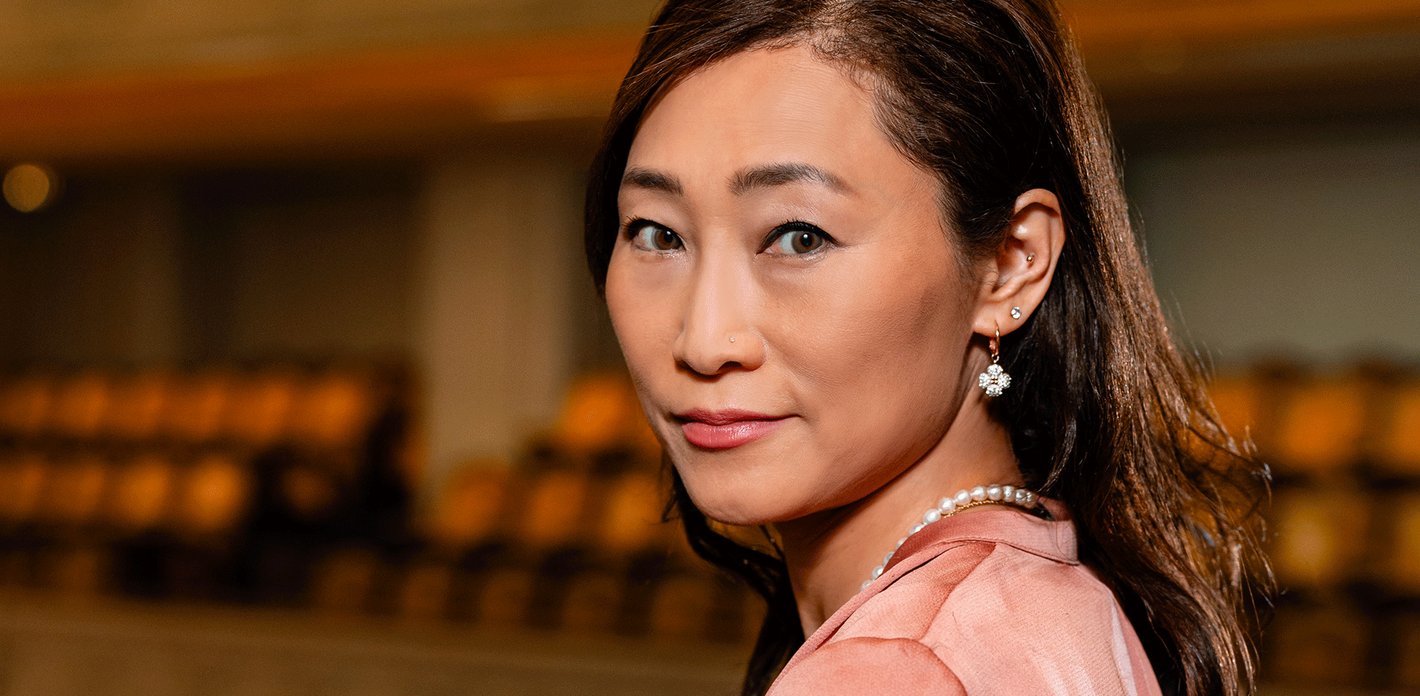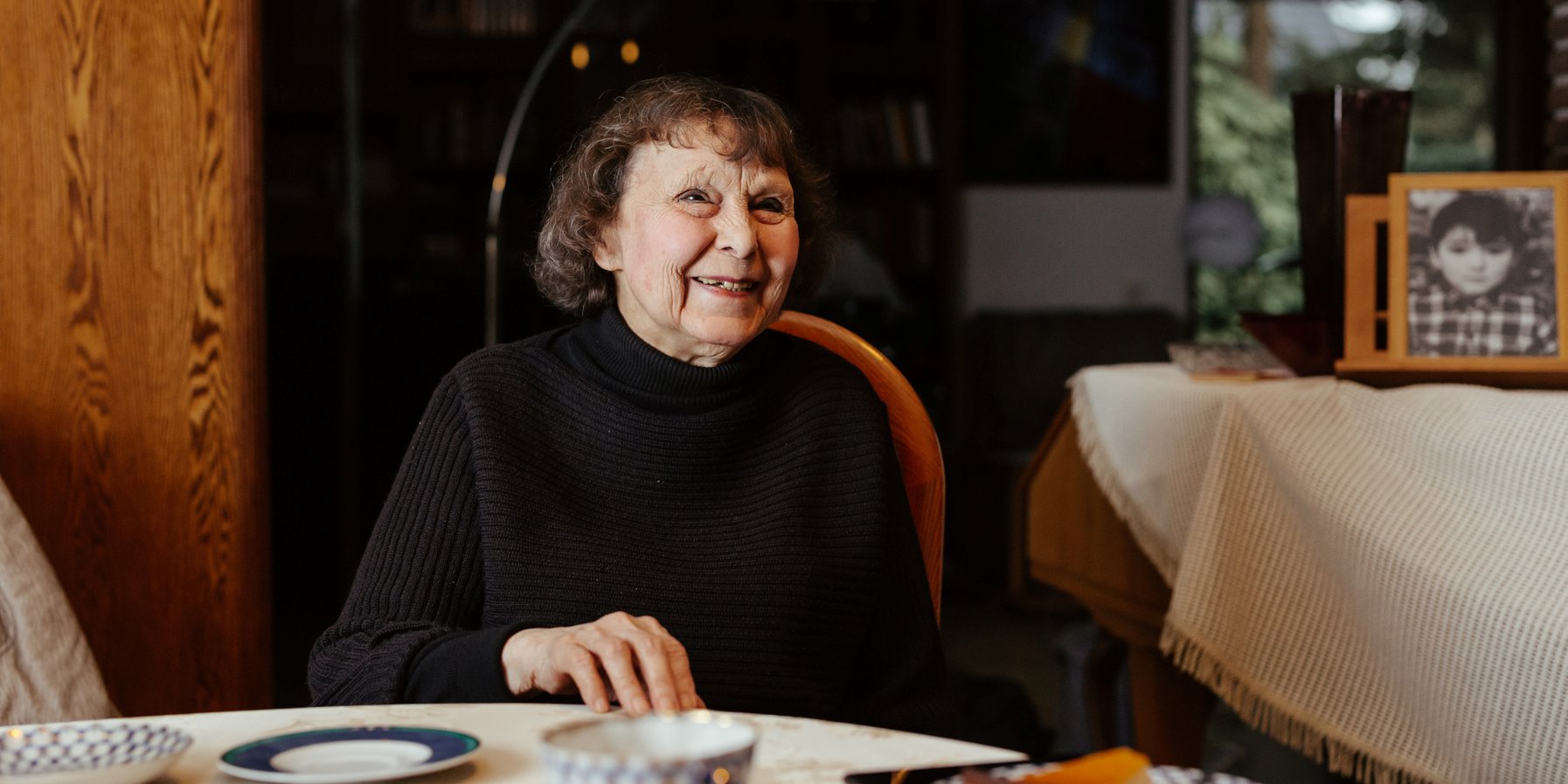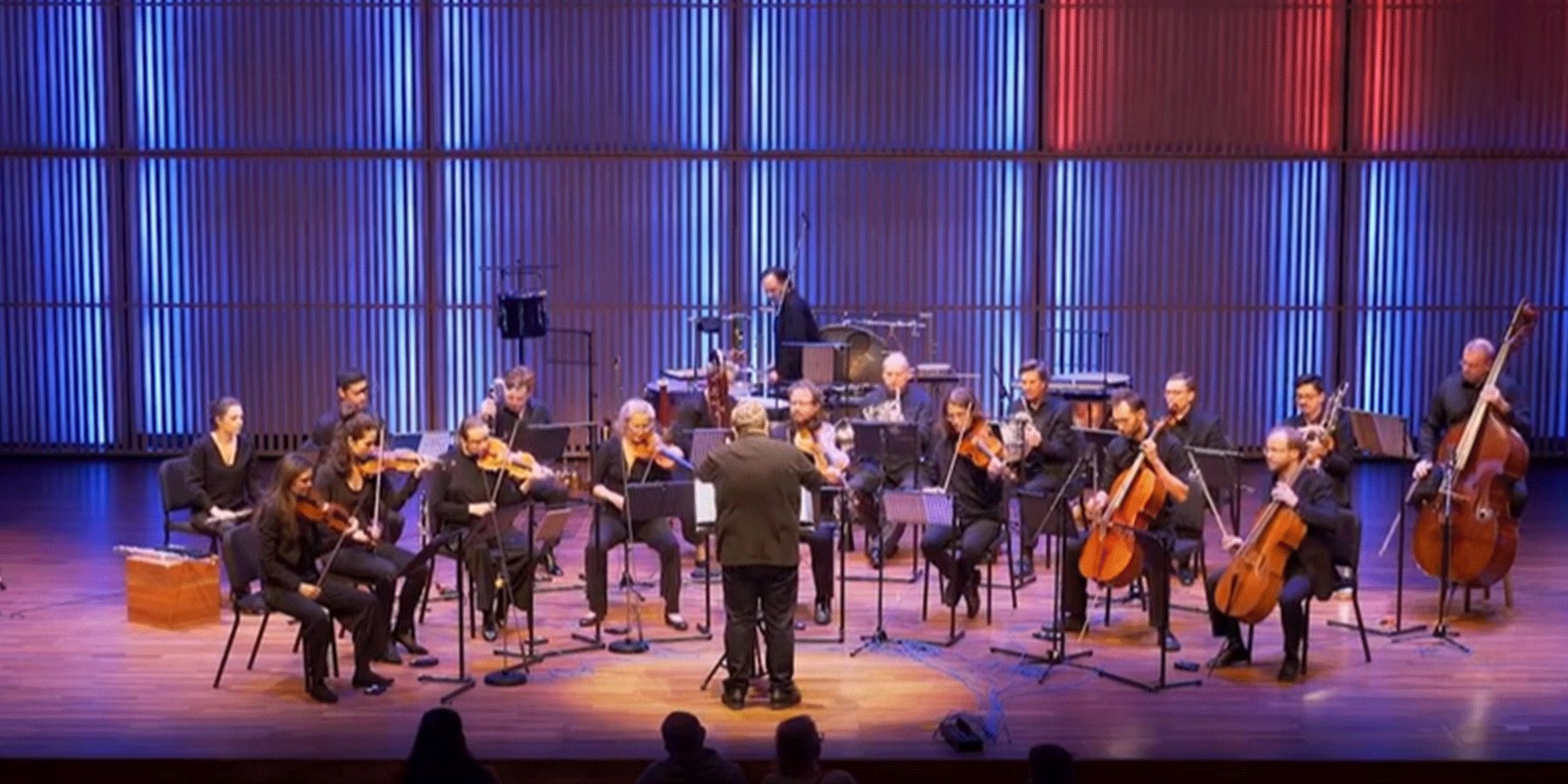Interview: Ivana Rajič, March 26, 2025
The internationally renowned composer Seung-Won Oh was born in South Korea and studied in Seoul, the USA and The Hague, where she now lives. A few weeks before the German premiere of her orchestral work »Spiri III: Sacred Ritual« on April 1, 2025 at Elbphilharmonie's Grand Hall, she took the time to talk to us: About her connection to the famous Russian composer Sofia Gubaidulina, her spirituality, and her new work.

Your orchestral work »Spiri III: Sacred Ritual« was commissioned by the Royal Concertgebouw Orchestra and will be performed under the direction of Klaus Mäkelä. What was working with these fantastic musicians like?
In November 2023 I had the chance to meet Klaus Mäkelä briefly. During the meeting I showed him »Spiri I«, which was completed but not yet premiered. I asked him if he had any suggestions for »Spiri III«, and his response was simple: »Do whatever you would like to do.« I’m very grateful for his trust, as it’s the sign of support for my artistic goals and voice.
What do you consider when composing a commissioned piece?
When working on a commission, the most important consideration is the structure of the composition. In that sense, I see myself more as a sculptor than a painter. First, I think about the instruments or players I will be writing for, followed by the duration requirement of the commission, which I consider as the musical canvas. Finally, I aim to integrate the music into a larger context, considering the concert program and whether it has a specific theme or idea. These parameters are crucial because, without them, you could easily end up going in too many different directions. I try to transform these limitations into an advantage, guiding the outcome. For this concert at the Elbphilharmonie, my piece will precede Sofia Gubaidulina’s »Offertorium« and Robert Schumann’s Symphony No. 4. I was kindly asked to create a connection to these two works within my piece if possible.
And what does the connection to the two works by Gubaidulina and Schumann look like?
My attention quickly turned to Gubaidulina's »Offertorium« early on while studying both works. However, looking back at how Schumann opens the symphony with this grandiose bang of the entire orchestra, it creates an unmistakable connection to the bell calls in »Spiri III«. Any other connections with Schumann’s Symphony No. 4 would likely be the result of a subconsciously internalized appreciation of his work, rather than an intentional, surface-level compositional scheme.
»Spiri III« begins in a relatively light tone compared to the other pieces of the »Spiri« series. This approach was influenced by the need to compose a piece that would serve as an introduction to a heavy violin concerto. However, after about two-thirds into the composition, there’s a dramatic shift, almost as if the piece has concluded and started an entirely new chapter of another composition. Then, the elements of the »Spiri« trilogy emerge, leading »Spiri« to its full closure. There is a tiny quotation from »Offertorium«, played by the low strings in the final quarter of my composition. The violin creates an almost pure and expressive sound on the low G string, punctuated by the piano and harp, which to me almost resembles an »Amen«. As the brass chorale comes to a close, the »Amen« quote from Gubaidulina’s Violin Concerto appears, transposed to the proper key of »Spiri III«. If you are familiar with »Offertorium«, you will instantly recognize this moment.
The composer Sofial Gubaidulina died on March 13, 2025; the concert is dedicated to her memory. What relationship do you have with her and her music?
Gubaidulina’s passing last weekend makes me deeply emotional. I had been hoping I would meet her again at the concert. I first met her in October 2011 at the Concertgebouw in Amsterdam during the Gubaidulina Festival (dedicated to her), where my small chamber piece was programmed alongside her music. We didn’t speak a word, as she didn’t speak English and I didn’t speak German. Since then, I’ve come to understand more about the depth, direction, and purpose of her music. Initially, I thought »Spiri III: Sacred Ritual« would be more influenced by Olivier Messiaen’s music, because »Spiri I« was supposed to precede his »Turangalîla Symphony« back in 2022, when the Concertgebouw Orchestra commission had been in the making around the similar period. In the end, Gubaidulina’s work profoundly shaped this composition, and she has become a significant role model for me.
While I was composing »Spiri III«, I listened to Gubaidulina’s Violin Concerto, »Offertorium«, no less than 100 times, immersing myself in the music. I played it repeatedly during my daily routine, and only once I had known the entire piece by heart did I study the score. I could truly feel her faith and the deep connection between her adoration of music and her religious devotion in this work. Getting to know her better through her interviews and documentaries only deepened my appreciation for her music, and I realized that I am on a similar path.
Sofia Gubaidulina: »Offertorium«
Aside from the programming, what inspired »Spiri III: Sacred Ritual«?
»YeonDo« inspired me very much. »YeonDo« is a requiem I wrote for a contralto, male choir, percussion quartet, and chamber orchestra (2020). Unintentionally, it became a homage to my father at the postponed premiere due to the COVID pandemic: I lost him during the COVID pandemic under tragic circumstances. Although born and raised a Catholic, I view life beyond death. Despite the tragedy, I believe this is not the end but rather a new beginning for my father. This perspective led me to the idea that our time on Earth is but a fleeting moment in the vastness of the universe. The concept of an ongoing cycle, ever circulating, deeply influenced this work and the trilogy as a whole. By coincidence, »Spiri III: Sacred Ritual« also became a tribute to Gubaidulina.
In the piece, I use a five-note harmony derived from a white key scale. By inverting and transposing the chord, I preserve the intervallic relationships while giving the same set of intervals a refreshed meaning. This repeating harmonic pattern, which I call a »chaconne«, became a core element of the trilogy. It is almost inaudible in »Spiri I: Stained Ritual«. In »Spiri II: Sheltered Ritual«, I bring these hidden harmonies to the surface, and in the final piece, »Spiri III: Sacred Ritual«, the fully developed and purified »chaconne« becomes audible. This was the initial idea behind the trilogy when I began the series in 2023.
In which other ways are the three pieces of the trilogy connected?
The three pieces quote each other in various ways. »Spiri III«, in particular, incorporates many elements from »Spiri I«. Both pieces, for example, end with the same G major chord, which also reappears in »Spiri II: Sheltered Ritual«. In this second part, there’s a natural harmonic glissando-based horn melody that eventually evolves into its fully developed section in »Sacred Ritual«. So, there is a lot of interplay between these pieces. Interestingly, when I wrote the horn melody, I wasn’t aware I would later use it in »Spiri III«. It’s about reflecting on a completed piece while working on the next. In fact, I’ve been quoting myself for quite some time.
Seung-Won Oh: »Spiri II: Sheltered Ritual«
Because everything circulates, and endings mark beginnings, as you reflected on in the »Spiri« trilogy?
Exactly. I draw a lot of ideas from the overtone series as the foundation of the soundboard. When I create dissonance, I aim for the higher registers of the overtone series partials, where the notes are closer together. For diatonic harmonies, I lean into the lower registers and wider intervals. I use this concept in various ways — harmonically, melodically, rhythmically, or even purely as timbre. It serves as a foundation that I can revisit and reinterpret in countless ways, with fresh ideas and new themes.
So variation is also important when it comes to repetition, and how does it relate to the concept of a ritual, which gives the pieces their titles?
I wouldn’t describe it as variation; I would rather use the term »transformation«, as it evolves over time and has the nuance of continuation. We approach or perceive an idea differently because our circumstances change. When I think of variation, I recall the piano variations of Mozart and Beethoven, which follow specific structures and goals that seem somewhat limited in comparison. The recurrence of elements in my works results from a continuous process of development, not a mere repetition.
A ritual is indeed based on repetition, but what sets the two apart is the intention and purpose behind the action. Rituals are actions we perform with a conscious awareness of their meaning and purpose, while habits are actions we perform automatically without much thought. If I open the windows every morning upon getting up, for example, and remind myself of why I am opening the window and what it does to me — to get fresh air through my lungs and clear my mind — it instantly becomes a ritual. If I do the same action without thinking of these purposes, the same action becomes a habit.
What would you like the audience to take away from the »Spiri III« concert experience?
I would be very pleased to learn that »Spiri III: Sacred Ritual« opens up an opportunity for the audience to contemplate and reflect on our existence in the universe. It would be so meaningful if there was an opportunity for us — humans — to understand the beauty of co-existing in harmony.
- Elbphilharmonie Großer Saal
Royal Concertgebouw Orchestra / Julian Rachlin / Klaus Mäkelä
Schumann: Symphony No. 4 / Gubaidulina: Offertorium
Past Concert









